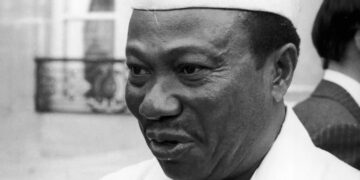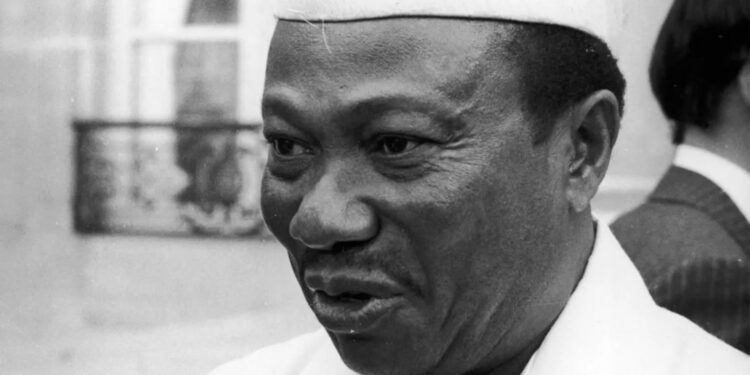Liberia held a symbolic state funeral on Tuesday for former President William Tolbert and 13 members of his cabinet, 45 years after they were executed in a brutal military coup that plunged the country into decades of violence.
A dark chapter in Liberia’s history began on April 12, 1980, when then 28-year-old Sgt. Samuel Doe led a coup that overthrew Tolbert and ended over a century of rule by Americo-Liberians, descendants of freed U.S. slaves.
Tolbert was killed and his body dumped in a mass grave that was never found. Ten days later, 13 of his ministers were stripped, tied to stakes, and executed by firing squad on a Monrovia beach. Despite a memorial tombstone, excavations this year found no bodies.
The reburial, ordered by President Joseph Boakai, is part of Liberia’s effort to confront its violent past. “This is not just a burial, it is a moment of national reflection,” Boakai said at a similar ceremony last week for Doe, who was also killed in 1990.
Families of the victims see it as long-overdue justice. “The pain is still fresh,” said Yvette Chesson-Gibson, daughter of executed Justice Minister Joseph Chesson. “Our fathers were murdered in one of the world’s most despicable acts of brutality,” added Bindu Dennis, daughter of Tolbert’s Foreign Minister.
Liberia’s unfinished reconciliation has been a long struggle. In 2006, a Truth and Reconciliation Commission was set up but failed to prosecute war criminals. In 2023, Boakai signed an order to establish a war crimes court, but progress remains slow.
Today’s ceremony included a 21-gun salute, the presentation of Liberian flags to victims’ families, and calls for national unity.
The 1980 coup triggered two civil wars between 1989 and 2003 that killed more than 250,000 people. While Liberia has been at peace since then, justice remains elusive. “We must come together to advance our nation,” said Jarso Maley Jallah, the minister overseeing the reburial. “Reconciliation is not an event, it’s a process.”



































